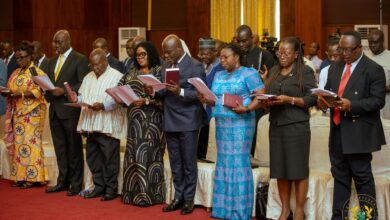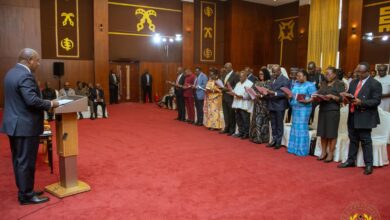
By: Phillip Ayoub , Kristina Stoeckl
This essay explores the troubling global pattern of illiberal governments weaponizing the issue of LGBTIQ rights. We argue that the fluidity of sexual orientation and gender identity makes LGBTIQ people susceptible targets for antidemocratic forces, allowing autocratic and illiberal regimes to contrast these identities with the perceived stability of tradition, national sovereignty, and conventional notions of “nature.” Political homo- and transphobia are used by illiberal governments as tools to mobilize constituencies by framing LGBTIQ rights as incompatible with traditional values. Based on interviews and observations of participants at international forums, we also chart the global movement opposing LGBTIQ rights and explain how it undermines liberal democracy and threatens human-rights egalitarianism, weakens international institutions, and weaponizes democratic pluralism in divisive culture wars. The essay calls for a nuanced understanding of the complex interplay between illiberalism, homo- and transphobia, and the challenge posed to the foundational values of liberal democracies. We also offer ideas for how actors in liberal democracies can respond to and defend LGBTIQ rights effectively.
In 2021, the Hungarian parliament passed a law banning the distribution of information about sexual orientation and gender identity to minors. What has been referred to as Hungary’s “anti–gay-propaganda law” and “anti-pedophilia law” calculatedly conflated homosexuality and pedophilia in an example of state-sponsored homophobia.
The bill was inspired by Russia’s infamous 2013 anti-gay law, which the country’s parliament strengthened in 2022. In 2023, Uganda passed the Anti-Homosexuality Act, which criminalizes the identities and behavior of LGBTIQ people, imposing a life sentence on consensual same-sex conduct among adults and even the death penalty in exceptional cases.
Hungary, Russia, and Uganda rate differently on the democracy indexes, although none qualifies as a liberal democracy, and each country handles socioeconomic and religious-cultural matters differently. And yet, all three governments have passed bills targeting LGBTIQ people. Why are illiberal governments in different corners of the world, and even some right-wing politicians within consolidated democracies, making resistance to LGBTIQ rights a central pillar of their political agendas?
The pushback against LGBTIQ rights is a global phenomenon, based on a common agenda of promoting traditional values over individual human rights, and it forms a bond between illiberal and undemocratic forces across autocratic regimes, competitive authoritarian governments, and some consolidated democracies. Part of what makes sexual orientation and gender identity useful targets is their fluidity, which governments and antidemocratic political actors can easily contrast with and present as a threat to the fixity of tradition, the sovereignty of nation, and common understandings of “nature.”
The global resistance to LGBTIQ rights poses a serious challenge to liberal democracy because it undermines the liberal commitment to human-rights egalitarianism, weakens international institutions, and weaponizes regular democratic pluralism for a polarizing discourse of persistent culture wars.
LGBTIQ Rights Are Human Rights
After a century of struggle, LGBTIQ rights emerged in the 2000s as a trademark of consolidated liberal-democratic regimes. If women’s suffrage marked the early starting point of liberal-democratic inclusion, it is the addition of LGBTIQ rights—previously relegated to a handful of small, secular, advanced industrialized democracies—in international human-rights frameworks that symbolizes the achievement of modern egalitarian pluralism.
To be sure, liberal democracies’ support for LGBTIQ rights is neither longstanding nor equal. Many liberal democracies denied even the most basic protections to LGBTIQ people until recently; for example, the United States did not ban antisodomy laws until 2003, legalize same-sex marriage until 2015, or extend workplace protections until 2020. And there exist today dozens of provisions to exclude trans people in parts of the country.
The partial realization of such rights, including around partnership, parenting, antidiscrimination, decriminalization, and gender recognition, was slow and required the hard work of dedicated activists who managed to break patterns of exclusion, discrimination, and stigmatization. Although still limited, the magnitude of these recent changes has been remarkable given the starting point.
Since many politicians and citizens in the West see the consolidation of LGBTIQ rights in their own societies as the result of a long learning process, they may be tempted to view states that continue to discriminate against LGBTIQ people with lenience: “They are not yet ready,” goes this thinking.
But if politicians and citizens in the West see LGBTIQ rights as something that can come only with time and democratic experience, they may fail to appreciate the challenge posed by autocratic regimes and illiberal politicians who are stoking anti-LGBTIQ sentiment and attacking LGBTIQ rights in hopes of halting or hindering democratization in their countries.
Political homo- and transphobia are also useful tools for mobilizing constituencies at election time. Frequently playing on existing stereotypes and homophobic prejudices, leaders present LGBTIQ rights as a dangerous and unattractive side of democracy.
The Allure of Traditional Values
Patterns of resistance against LGBTIQ rights vary among illiberal regimes, but many assertions and strategies are shared. While closed regimes such as Iran and Saudi Arabia persecute homosexuality with extreme sanction (including the death penalty), autocratic and competitive authoritarian regimes may resort to subtler, though still violent, ways of restricting the freedom of LGBTIQ people—for example, upholding laws that criminalize homosexuality, banning information about LGBTIQ rights in the public sphere, or upholding discriminatory legislation. Whatever the means, the resistance to LGBTIQ rights has become a global phenomenon based on a set of claims that stir emotion and polarize public debate.
They aim to create suspicion and fear and to convince the people that liberal democracy, with its respect for individual human rights, is a less attractive political option than majoritarianism and authoritarian rule, which will keep in place the majority’s core values. Indeed, “common sense” claims about religion, the nation, and children, women, and family make up an agenda of intersecting traditional values that unites autocrats and illiberal politicians across the globe.
Religion. Conservative religious teaching about traditional gender roles is a primary reason for discrimination against LGBTIQ people in many parts of the world. Autocratic regimes with state religions formally in place, such as Iran or Saudi Arabia, translate such religious teachings into laws that criminalize and allow for the persecution of gay people.
The Russian government passed anti-LGBTIQ legislation in the name of the traditional values represented by the Orthodox church. Illiberal and socially conservative politicians in democracies also use religious arguments to oppose LGBTIQ rights. The Polish right-wing government has declared “LGBT-free zones” across the country, clashing with the EU.
In Italy, right-wing parties teamed up with the Vatican to prevent the adoption of a law criminalizing hate speech against LGBTIQ people. Populist right-wing leaders in Europe often claim that their opposition to granting equal rights to LGBTIQ people is based on religion, yet they do not abide by all religious tenets equally—often ignoring, for example, church teachings on hospitality and charity in the context of migration.
These leaders depict the push for LGBTIQ rights by liberal states and international organizations as part of a liberal “totalitarian” project intended to restrict or extinguish religious freedom. Take, for example, the words of the Spanish conservative politician Jaime Mayor Oreja in a speech to the Budapest World Congress of Families in 2017: “The new times, the new world order, has a sick, pathological obsession to destroy Christian values in terms of civilization, and replace them with nothing.” Moral-conservative activists understand religious freedom as the right to affirm their convictions through the rejection of LGBTIQ expression in the public sphere—excluding LGBTIQ people from the public space, justifying discrimination, and allowing hate speech.
Paradoxically, many of the countries and authorities that use religious claims to attack LGBTIQ rights do not respect freedom of religion and belief within their own borders. Russia, for example, persecutes and restricts the religious practices of some non-Orthodox Christian minorities. In fact, it is religion as a marker of identity—and not religious freedom—that defines the core of the traditional-values narrative.
Nation. Belief in the superiority of the nation, its strength, durability, and privileged history leads nondemocratic actors to reject the message of pluralism, diversity, and transnational solidarity inherent in the LGBTIQ-rights movement. Such leaders argue that allowing gender and sexual identities outside traditional norms will threaten the fabric of the nation.
They leverage this juxtaposition of fluidity and fixity in different ways. Some leaders, for example, highlight Western insistence on LGBTIQ rights as a condition of granting aid or claim that tolerance of LGBTIQ people constitutes a form of Western neocolonialism, and that foreign-imposed tolerance tramples domestic sovereignty and leads to moral decay and demographic decline.
Additionally, they blame low birthrates in Western industrialized and secular democracies on the decline of the family and traditional values. This demographic anxiety dovetails with their assertions about children, women, and family.
Nationalism also plays a role in legal claims against LGBTIQ rights. By working through international-governance venues, such as the European Union or the Organization of American States, and international human-rights law, LGBTIQ-rights activists have obtained policy goals that would have been harder to reach in the domestic context alone.
These achievements, in turn, can be used as leverage to change national laws, and many illiberal leaders vocally resent this. They consider the LGBTIQ-rights movement, which they link to the European Union, the United Nations, or “the West,” as an agent of infringement on national sovereignty.
Childre: Illiberal actors often claim that LGBTIQ rights are a threat to children. They argue that sex education in schools exposes children to nontraditional relationships and early sexualization. Often, the claim is paired with the baseless insinuation that society must protect children from potentially predatory homosexual people.
The opponents of LGBTIQ rights thus claim to be protecting children when they pass anti-gay legislation and deny protections to LGBTIQ people. Notoriously, the Russian government said exactly that when it passed a law in 2013 against so-called gay propaganda, as did Victor Orbán when the Hungarian parliament did the same in 2021.
In the mid-2000s, some Polish parliamentarians unsuccessfully floated the idea of banning LGBTIQ people from teaching in primary schools. The program advanced by many conservative political groups across Western democracies to limit the discussion of gender identity in education uses a similar logic. In this form of populist right-wing discourse, upholding liberal-democratic values could be a slippery slope to children being harmed.
Women. Women’s rights are integral to a functioning democracy, and achievements in women’s rights—equal treatment before the law, access to health care, nondiscrimination in the workplace—are part and parcel of the struggle for LGBTIQ rights. It might therefore seem paradoxical that illiberal actors use women’s rights to argue against those of LGBTIQ people.
Yet the traditional-values narrative pits women and LGBTIQ people against each other. In an excellent example of what Clifford Bob calls the language of competing rights, moral conservatives, in alliance with anti-trans feminists, argue that equality for transgender people amounts to the erasure of cisgender women. Moreover, they claim that cisgender women need to be protected from the expansion of transgender rights and (in some spaces) transgender women themselves.
Family. The claim that traditional families are in need of defense from expanding LGBTIQ rights and the threat they pose to the nation, children, and women forms the basis for transnational, moral-conservative alliance-making.
This idea unites illiberal regimes and right-wing policymakers in Western democracies. Especially at the United Nations, the effect of coalition-making around “family” is striking, creating frequent deadlocks and argumentative standoffs between the liberal democracies and other states.
Within the UN Human Rights Council, for example, a coalition of countries that includes Belarus, Russia, and Egypt created the Group of the Friends of the Family in support of the traditional family over more open and inclusive definitions of family frequently advanced by Western democracies.
Leaders often raise the specter of an LGBTIQ threat for political gain, even more so when elections are tight. Turkish president Recep Tayyip Erdoğan frequently did so during his 2023 campaign. At a May rally in Rize, Erdoğan said, “Mr. Kemal, we know you are a supporter of LGBTQ,” in reference to his opponent, Kemal Kılıçdaroğlu. “We will never allow [LGBTQ people] to injure your family.”
He went on to tell a reporter that the “thing called LGBTQ is a poison, once introduced into the family institution.” Other politicians extend the link to the nation: Istanbul governor Davut Gül banned his city’s 2023 Pride parade, claiming that “no activity that threatens our family institution, which is the guarantee of our nation and state, is allowed.”
The political establishment has also taken on the issue in Lebanon and Jordan, once seen as standouts for queer subcultures in the Middle East. Hassan Nasrallah, the leader of the Hezbollah militia in Lebanon asserted in a televised address that the United States was leading a charge to change school curricula in countries everywhere to “promote a culture of homosexuality in schools and universities.”
He later condemned “children’s books promoting this deviant culture,” called for government intervention in education, and said that “sodomy” merited the death penalty. The vice-president of the Jordanian Scholars Association has issued a call to safeguard the sanctity of the family amid the emergence of campaigns within the country advocating for LGBTIQ rights. Concurrently, the Jordanian Senate has passed a cybersecurity law that subtly alludes to the preservation of public decency, thereby targeting activities categorized as “immoral.” In Israel, Rabbi Thau, the leader of the Noam Party, has called on his followers and constituents to “wage war” on the “fatal disease threatening to destroy” the country—referring to the LGBTIQ community.
Such rhetoric has also swept Africa in recent years. For example, about the 2023 Anti-Homosexuality Act, Ugandan president Yoweri Museveni declared, “Africa should provide the lead to save the world from this degeneration and decadence which is really very dangerous for humanity.”
Then, using a common framing in Africa, Museveni linked LGBTIQ rights to neocolonialism: “The homosexuals are deviations from normal. The Western countries should stop wasting the time of humanity by trying to impose their practices on other people.” Likewise, the Kremlin has relied often on anti-LGBTIQ rhetoric to construct its moral justification for its invasion of Ukraine, claiming that it is defending Orthodox Christians in Ukraine from Western “moral decay” and “pride parades.”
At home, it passed a slew of anti-LGBTIQ legislation in 2022 and 2023 to highlight its stance. Illiberal leaders in a diversity of countries are telling their people that their religions, nations, children, women, and families are under threat from changing gender norms and in need of protection from them. Yet the struggle of LGBTIQ-rights activists to obtain the right to form a legally recognized family or to conceive, adopt, and raise children are direct efforts to strengthen family life (although not all queer activists have embraced this course).
Similarly, the choice by some same-sex couples to get married with a religious ritual endorses rather than undermines the persistent value attached to religion.
The global traditionalist actors opposing LGBTIQ rights ignore such logic. Their criticism is directed against the LGBTIQ-rights movement itself, which is portrayed as a “lobby.” At the same time, the traditionalist agenda is directed against the ideologically neutral, secular, and liberal-democratic state, which makes legislation affirming LGBTIQ rights possible in the first place.
In countries of the Global South, as well as in Eastern Europe and Russia, right-wing politicians and activists often argue that equality in matters of sexual orientation and gender identity is a Western ideology designed to destroy traditional social structures. In other words, the rejection of LGBTIQ rights is a means to cast off the liberal-democratic idea as such.
Transnational Organizing
Autocrats and right-wing actors inside Western democracies not only share ideas, they are connected via a global network of conservative activists and transnationally active NGOs that transmit these ideas. Right-wing and moral-conservative groups are increasingly networking across borders in ways similar to transnational human-rights organizations (or what the anti-LGBTIQ activists call the international “gender lobby”). Moral conservatives organize across cultural, national, and denominational boundaries with the aim of influencing international organizations as well as national parliaments, governments, and other institutions.
Religion plays a central role in these efforts. Moral conservatives often claim that liberal and democratic values threaten their religious freedoms. Conservative evangelical, Protestant, Catholic, and Orthodox groups and churches play a leading role in transnational anti-LGBTIQ networks, often in cooperation with Jewish activists and partner organizations in Islamic countries. This “ecumenism of the trenches” is a child of the 1980s “culture wars” in the United States, which has spread globally and brought together unlikely allies.
In the United States, both terms denote conflicts between progressive and conservative positions, sometimes within the same denomination. The U.S. religious right, which includes evangelical and Protestant churches, Pentecostal churches, and Catholic groups as well as Mormons, has always seen itself as transdenominational and therefore calls itself “ecumenical.” The partners are united less by the search for Christian unity than by a constructed common enemy: modern, secular society with its pluralistic values. LGBTIQ rights serve as a symbolic stand-in for them.
Moral-conservative value alliances modeled on the U.S. Christian right have spread from the United States to Europe, Russia, and the Global South. Networking happens in person and online. For example, the U.S.-based International Organization for the Family (IOF) promotes personal contacts between moral-conservative groups and activists.
It has hosted the World Congress of Families for more than twenty years—including in Prague in 1997, Mexico City in 2004, Sydney in 2013, and Budapest in 2017. The organization brings together conservative activists and politicians from around the world. Orbán, Italian prime minister Giorgia Meloni and Lega Nord leader Matteo Salvini, former Moldovan president Igor Dodon, Nicolas Bay of France’s National Rally, and Maximilian Krah of Alternative for Germany have all taken part. IOF also promotes local partner organizations in Europe, Russia, Africa, and Latin America.
We have attended several of these meetings as part of our research. In our interviews and participant observations, we have found that the personal networking of activists through international conventions has an important function in spreading the moral-conservative agenda. Participants are urged to broaden the base supporting their demands in their own countries, to reach out to religious people of all denominations, and to seek the support of prominent political, religious, and media figures. By encouraging local partners to recruit new members and train activists and leaders, the IOF is helping to expand a transnational conservative network and accelerating the creation of new organizations. NGOs in Hungary, Italy, Poland, and Spain are part of this network, as are activists in Kenya, Mexico, and Nigeria. In Russia, the IOF has inspired the creation of at least four local organizations that advocate for traditional family values and oppose abortion.
In addition to personal contacts, digital networking plays an important role in transnational mobilization around antidemocratic, morally conservative issues. The international conservative activist and petition platform CitizenGO, founded in 2013 by a Spanish anti-abortion activist, shows how this works. CitizenGO exists in English, Spanish, and French, as well as Croatian, Dutch, German, Hungarian, Italian, Portuguese, Polish, and Slovak. (The Russian-language website shut down in the spring of 2022, presumably to hide CitizenGO’s connection to Russian partners after the invasion of Ukraine).
Two types of articles and petitions can be found on the platform: those that are translated and published on all websites simultaneously, and those that focus on a specific national context in only one language. The campaigns address issues ranging from abortion to same-sex marriage to transgender rights, reproductive rights, and religious freedom. For example, a particularly large number of people signed a petition opposing “LGBT indoctrination by LEGO” after the toy manufacturer launched a rainbow-colored building-block set. On CitzenGo, morally conservative concerns are shared and spread across geographic and linguistic borders.
These conservative transnational networks ironically are made up of groups and activists that claim to stand for particularism, traditionalism, and national independence and often criticize liberal-democratic rights movements and progressive movements for a pernicious internationalism. Yet today’s moral-conservative groups are globally networked in a way that mirrors how liberal human-rights NGOs connect and cooperate. Moreover, the moral conservatives’ programs borrow from the classic themes of U.S.-style Protestant religious conservatism.
This borrowing effect is particularly visible in the case of the Russian Orthodox Church. As Kristina Stoeckl and Dmitry Uzlaner show in The Moralist International: Russia in the Global Culture Wars, Russian Orthodox actors use the themes of the global culture wars to present themselves as a bulwark against the West. Russian conservatives, for example, often tell so-called depravity stories.
These are accounts of the supposedly disastrous effects of social liberalization in the West—of how sex education, for example, corrupts children and sets them on a path of rampant sexual behavior; of gay couples adopting boys and supposedly raising them as girls; or of governments in European countries allegedly wanting to replace the terms “mother” and “father” with “parent 1” and “parent 2” (which President Vladimir Putin repeated in his speech on the Russian annexation of occupied Ukrainian territories).
Western audiences have only recently become aware of how Russia, through the war sermons of Patriarch Kirill and Putin’s speeches, is exploiting the depiction of “depraved” Western society to justify the war on Ukraine. But these stories have dominated Russian anti-Western propaganda for years. In other countries, such as Poland, Hungary, and Uganda, such tales have long circulated in conservative milieus.
The globalization of the movement against LGBTIQ rights has consequences—from countries such as Bulgaria refusing to ratify the Council of Europe’s Istanbul Convention Against Domestic Violence (because vocal Orthodox and Euroskeptic activists in the country objected to the term “gender” used in the document) to the criminalization of LGBTIQ people in Africa resulting from successful lobbying by right-wing Christian groups from abroad. The aforementioned Ugandan Anti-Homosexuality Act is an example. Its passage was preceded by a decade of lobbying by fundamentalist Evangelical and Pentecostal groups from the United States.
Phillip Ayoub is professor of political science at University College London. He is author of When States Come Out: Europe’s Sexual Minorities and the Politics of Visibility (2016) and coeditor of the European Journal of Politics and Gender




